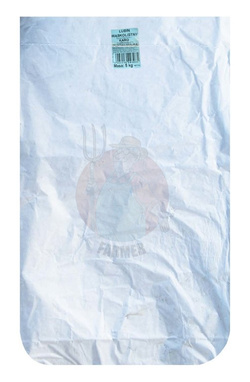- Łubin wąskolistny należy do rodziny roślin strączkowych. Uprawiany jest głównie na nasiona, ponieważ charakteryzuje się dużym potencjałem plonowania. Nasiona są cennym źródłem białka, którego zawierają od 30-35%.
Wartości rolniczo-użytkowe:
Jest to odmiana średnio wczesna, odporna na pękanie strąków, o podwyższonej odporności na choroby wirusowe oraz antraknozę. Charakteryzuje się wysokim plonem nasion, jest odporna na wyleganie, zawiera alkaloidy.
Zalecana do uprawy w plonie głównym na nasiona oraz jako poplon.
Warunki glebowe:
Najodpowiedniejsze do uprawy są gleby dobre oraz średnio żytnie o odczynie obojętnym.
Miejsce w płodozmianie:
Na nasiona najlepiej uprawiać po zbożach, nie częściej jednak po sobie niż co 4 lata.
Nawożenie:
Nawożenie stosować pod orkę zimową w ilości 70-90 kg/ha P2O5 i 100-120 kg/ha K2O.
Siew:
Należy przestrzegać możliwie jak najwcześniejszego terminu siewu optymalnego dla danego rejonu. Ilość wysiewu 170-180 kg/ha w rozstawie 15-20 cm.
Zwalczanie chwastów:
Bezpośrednio po zasiewie stosować herbicydy do zwalczania chwastów zgodnie z zaleceniami IOR.
Zbiór:
Zbiór nasion rozpoczynać, gdy strąki zbrązowieją, a łodygi zżółkną, co wypada najczęściej w I dekadzie sierpnia. nasiona po zbiorze należy dosuszyć.
UPRAWA ŁUBINU WĄSKOLISTNEGO
Wymagania glebowe:
Łubiny wąskolistne uprawia się na glebach średnich i lekkich, lekko kwaśnych. Łubiny nie lubią jednak gleb podmokłych. W płodozmianie łubiny uprawia się po zbożach w 3-4 roku po oborniku. Łubiny powinno uprawiać się w odstępach 4-5 letnich po sobie.
Siew:
Siew powinien zostać wykonany w III dekadzie marca do gleby zaoranej jesienią, a na wiosnę odpowiednio przygotowaną do siewu na głębokość 3-4 cm o rozstawie rzędów 12-20 cm z obsadą roślin 90-100 roślin/m2 (130-170 kg/ha). Podczas uprawy łubinu po długiej przerwie nasiona należy zaszczepić Nitraginą oraz zaprawić zaprawą grzybobójczą np. Vitavax 200FS.
Nawożenie:
Nawożenie najlepiej wykonać przed orką zimową w dawce 50-70 P2O5 kg/ha oraz 80-90 K2O kg/ha. Forma startowa azotu powinna wynosić 20kg.
Ochrona łubinu:
Zwalczanie chwastów powinno zostać wykonane po siewie np. środkiem Afalon, Azotop, Topogard. W celu ochrony łubinu przed zachwaszczeniem roślinami jednoliściennymi zaleca się stosowanie środków takich jak: Fusilade, Targa.
Zbiór:
Zbiór powinien zostać dokonany gdy strąki zbrunatnieją, a łodygi zżółkną i są bardzo suche, łubiny można poddać również desykacji. Nasiona po zbiorze powinny zostać dosuszone do wilgotności równej lub niższej niż 15%.
Uprawa łubinu wąskolistnego została opracowana wg zaleceń Poznańskiej Hodowli Roślin oraz Hodowli Roślin Smolice.








